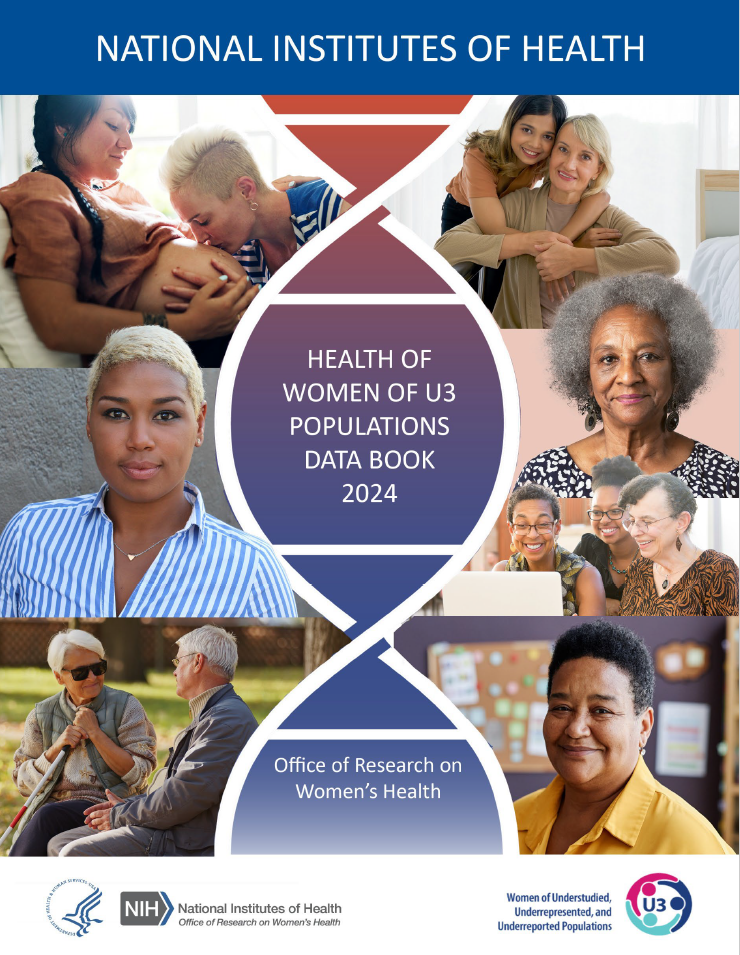The understudied, underrepresented, and underreported (U3) program was developed in 2017 to draw attention to the lack of biomedical research on persistent disparities and inequities in women’s health care, and to support evidence-based research efforts to address these gaps. The U3 program highlights the intersectional experiences of women, exploring the ways in which socially determined categories, like race or gender, overlap and interact to create differing outcomes for individuals and communities.
To reduce illness, enhance health, and lengthen life, researchers collected data to help identify the ways in which different factors, such as socially determined categories, affect health. With their findings, ORWH developed the fifth edition of the Health of Women of U3 Populations Data Book, which focuses on the ways that socially determined categories and environments, systems, and policies intersect, resulting in different outcomes for individuals and communities.
The Health Data Book provides information to widen our knowledge base on how intersecting social constructs, such as class, race, age, and gender converge to influence treatment outcomes and trajectories of U3 populations of women.

